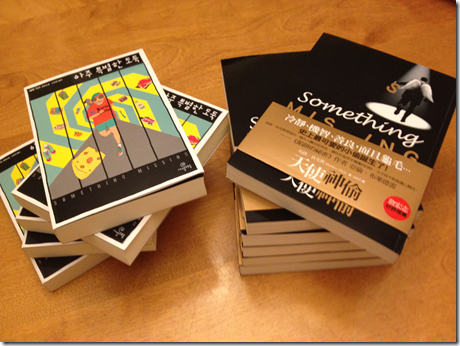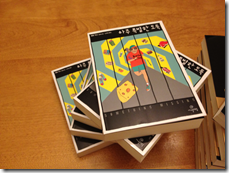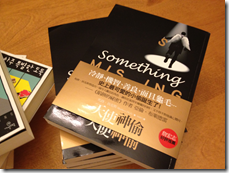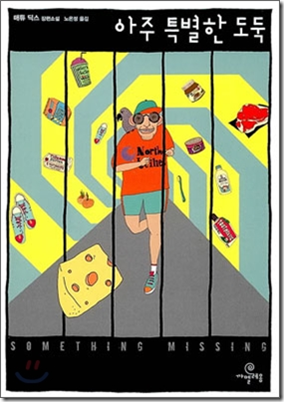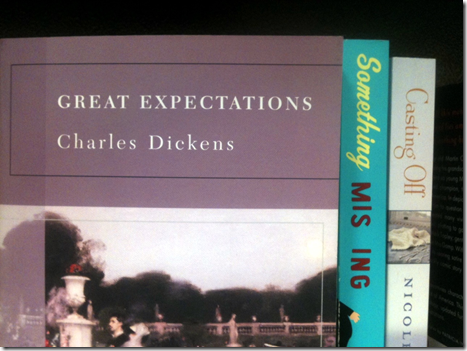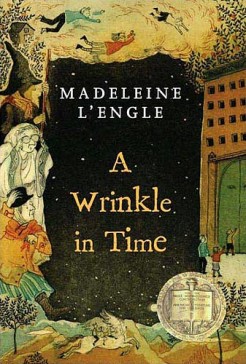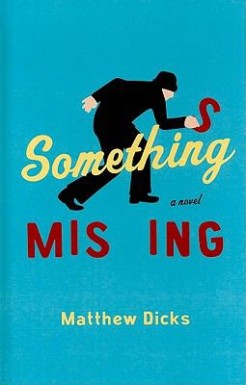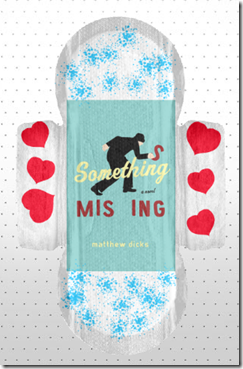One of the joyous aspects of becoming a published author has been watching people in my life take a crack at writing as well.
If that idiot can do it, maybe I can do it.
I agree.
Today was an especially busy day in this regard.
In the span of three hours, I met with a friend about a novel that she is writing, spoke over the phone to a friend about the YA novel that he is now revising, and reviewed a possible Op-Ed piece for another friend via email.
Quite a bit of writing suddenly going on around me.
In discussing my friend’s novel, she explained to me that one of her struggles has been with deciding upon a theme of her book. She has several excellent, insightful ideas in this regard, and she’s not sure in which direction to take her story. Each of her choices are broad, complex and worthy of a novel, but in terms of making a decision, I was little help.
I was forced to explain to her that I am a simpleton when it comes to these things as literary as theme.
Do each of my novels have a theme or themes? Of course.
But did I have any idea what those themes were as I began writing?
No way. I was clueless.
I am simply a slave to story. My focus is upon character and action. Nothing more. So far, it has seemed to work out well.
SOMETHING MISSING is the story of Martin Railsback. When I wrote the book, I had no thought about what overarching themes my novel might contain. I simply followed Martin through the course of a few weeks, documenting his actions and recording his words and his thoughts. I didn’t even know that Martin was obsessive-compulsive until other people began reading the manuscript and commenting on his condition. I just thought he was just being Martin. Any theme that ultimately arose in the book was simply a function of the character and his story, and it had nothing to do with any predetermined plan on my part. I take no credit.
UNEPXECTEDLY, MILO is the story of Milo Slade. When I began the book, I thought that I was writing a novel about the struggles of separation and divorce, but once again, I was wrong. I was writing about Milo Slade. Nothing more. And his story veered off in a decidedly different direction than what I had originally envisioned. The themes that ultimately arose from his story were far more complex and satisfying than what I had originally considered, and once again, they were unintended and unplanned.
When I began my still unpublished novel CHICKEN SHACK, I wanted to write a book about independence, inner strength, and the ability to survive and thrive despite the abandonment of family and friends. Then my wife and agent read the first three chapters of the manuscript and both commented on how much they liked the fact that I was writing about the importance of family, and specifically about the relationship between brothers. I thought that they were both crazy. My protagonist, Wyatt Salem, and his brother, Jeremy, could not be any more different, and reconciliation between the two of them seemed impossible. But by the time I finished writing Wyatt’s story, I had to admit that Elysha and Taryn had been correct. It was a story about family, and specifically, a story about brothers. And oddly enough, they knew it before me.
I explained to my friend that the last thing I think about when I am writing is theme and suggested that she do the same. My job is to focus all of my attention on the characters and simply watch as their story unfolds, attempting to document as much of it as possible, as accurately as possible. In describing this process, I explained the origins of the most recent chapter of my current manuscript, one that she particularly enjoyed. My thought process went something like this:
I need a bully in this story. Yeah. A bully. Someone to be mean to Max. And I think I’ll have that confrontation take place in a bathroom. Yeah. A bully in a bathroom. Let’s see what happens.
That was it. My fingers began striking keys and I was off. A few thousand words later, the chapter was done. Character, action, dialogue, done.
I know. I sound like an idiot. But it’s how I work.
And while I’m beginning see a possible theme emerge in this new book, I’ve only written about ten thousand words so far. There’s no telling what might happen next. To assume anything at this point would be foolish.
So I’ll do what I have done for each of the previous books. I’ll be a slave to the story, worrying about nothing else but my characters and the things that they say and think and do. When the manuscript is finished, I will read it, and with luck, certain themes will become evident to me. As I revise, I’ll look to highlight and strengthen these emerging themes, but their origins will be entirely organic, born not from me but from the story.
Story dictates theme, at least for me. Theme never dictates story.
I think that when theme dictates story, the author often finds himself with a club in his hand, battering the head of the reader with his own thoughts and ideas rather than spinning out the story that he was supposed to write in the first place.
Either that or I’m just not clever enough to start with a theme.
